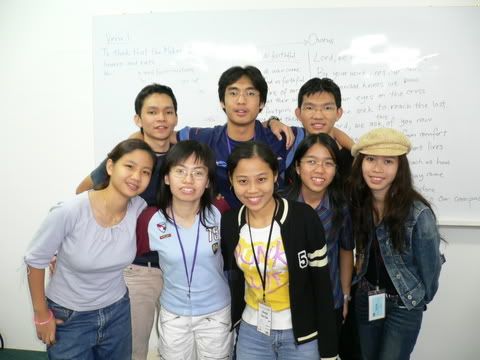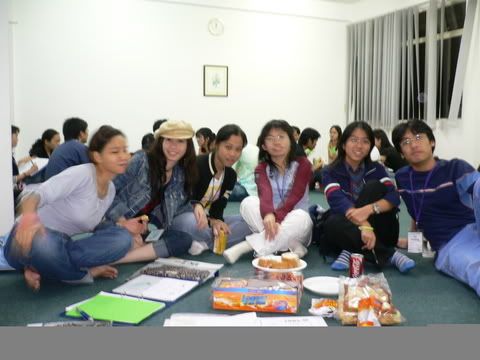All the passages below are taken from Joyce Meyer’s book “Beauty for Ashes,” published in 1994 by Time Warner Book Group.
IF YOU ARE a person who has been abused, by now you have probably identified some problem areas in your life. To point out problems without offering a solution to them would be disastrous. If I did that, you would end up more frustrated than you were before you began reading this book.
I intend to outline the major truths that brought healing in my own life. As I do so, 1 would like to remind you that God is no respecter of persons (see Acts 10:34). What He does for one person, He will do for another, if it is a promise found in His Word.
THE PROCESS OF HEALING
My first husband did not know how to love, so I received no love at all from our relationship. Although my wonderful second husband, Dave, did truly love me, I knew no more than I ever had about how to receive love. I bounced back and forth between:
(1) rejecting his love and closing him out of my life by building walls around myself to ensure that I would not get hurt (or so I thought), and,
(2) trying to get him to love me with a kind of perfect and complete love that was humanly impossible for him to achieve.
In 1 John 4:18 we read that perfect love casts out fear. Only God can love perfectly and without fault. No matter how much anyone may love another person, he is still human. As our Lord said, “The spirit indeed is willing, but the flesh is weak” (Matthew 26:41). People always disappoint other people---they always love somewhat imperfectly, simply because that is part of human nature.
I was trying to get Dave to give me something that only God could give me, which was a sense of my own value and worth. I wanted my husband to love me totally and to treat me perfectly so I could finally feel good about myself. Whenever he failed me, disappointed me, or hurt me, I would put up walls between us and not allow him in at all for days or even weeks.
Many people who come from abusive, dysfunctional backgrounds cannot maintain healthy, lasting relationships because either they do not know how to receive love or they place an unbalanced demand on their marriage partners to give them what only God can give. The resulting frustration often ruins the marriage.
This same principle can be applied to friendships. One time a woman came up to me in a prayer line and said: “Joyce, help me. I am so lonely. Every time I get a friend, I suffocate her.” This lady was so love-starved that if she found anyone who would pay any attention to her at all, she tried to collect all her past emotional debts from that individual, who owed her nothing. Her new friend was usually frightened away.
GOD’S BOUNDLESS, UNCONDITIONAL, PERFECT LOVE
One day as I was reading the Bible, I noticed this statement in 2 Corinthians 5:7: “For we walk by faith [we regulate our lives and conduct ourselves by our conviction or belief respecting man’s relationship to God and divine things, with trust and holy fervor; thus we walk] not by sight or appearance.”
The Holy Spirit stopped me and asked, “What do you believe, Joyce, about your relationship with God? Do you believe He loves you?”
As I honestly began to search my heart and to study the Word of God on this subject, I came to the conclusion that I did believe that God loved me, but conditionally.
The Bible teaches us that God loves us perfectly or unconditionally. His perfect love for us is not based on our perfection. It is not based on anything except Himself. God is love (see 1 John 4:8). Love is not His occupation; it is Who He is. God always loves us, but often we stop receiving His love, especially if our behavior is not good.
I would like to stop here and present several passages of scripture that have come to mean a lot to me. Please take time to read them slowly. Digest them and allow them to become a part of you:
And we know (understand, recognize, are conscious of, by observation and by experience) and believe (adhere to and put faith in and rely on) the love God cherishes for us. God is love, and he who dwells and continues in love dwells and continues in God, and God dwells and continues in him.
In this [union and communion with Him] love is brought to completion and attains perfection with us, that we may have confidence for the day of judgment [with assurance and boldness to face Him], because as He is, so are we in this world.
There is no fear in love [dread does not exist], but full-grown (complete, perfect) love turns fear out of doors and expels every trace of terror! For fear brings with it the thought of punishment, and [so] he who is afraid has not reached the full maturity of love [is not yet grown into love’s complete perfection].
We love Him, because He first loved us. (1 John 4:16-19 Amp)
In this the love of God was made manifest (displayed) where we are concerned: in that God sent His Son, the only begotten or unique [Son], into the world so that we might live through Him.
In this is love: not that we loved God, but that He loved us and sent His Son to be the propitiation (the atoning sacrifice) for our sins.
Beloved, if God loved us so [very much], we also ought to love one another. (1 John 4:9-11 Amp)
Who shall ever separate us from Christ’s love? Shall suffering and affliction and tribulation? Or calamity and distress? Or persecution or hunger or destitution or peril or sword? (Romans 8:35 Amp)
For I am persuaded beyond doubt (am sure) that neither death nor life, nor angels nor principalities, nor things impending and threatening nor things to come, nor powers,
Nor height nor depth, nor anything else in all creation will be able to separate us from the love of God which is in Christ Jesus our Lord. (Romans 8:38-39 Amp)
May Christ through your faith [actually] dwell (settle down, abide, make His permanent home) in your hearts! May you be rooted deep in love and founded securely on love,
That you may have the power and be strong to apprehend and grasp with all the saints [God’s devoted people, the experience of that love] what is the breadth and length and height and depth [of it];
[That you may really come] to know [practically, through experience for yourselves] the love of Christ, which far surpasses mere knowledge [without experience]; that you may be filled [through all your being] unto all the fullness of God [may have the richest measure of the divine Presence, and become a body wholly filled and flooded with God Himself]! (Ephesians 3:17-19 Amp)
Such hope never disappoints or deludes or shames us, for God’s love has been poured out in our hearts through the Holy Spirit Who has been given to us. (Romans 5:5 Amp)
Behold, 1 have indelibly imprinted (tattooed a picture of) you on the palm of each of My hands. (Isaiah 49:16 Amp)
1 John 4:16 is a key scripture for me because it says that we should be conscious and aware of God’s love and put faith in it. I was unconscious and unaware of God’s love; therefore, I was not putting faith in His love for me.
When the devil condemned me, I did not know how to say, “Yes, I made a mistake,” then go to God, ask for His forgiveness, receive His love, and press on. Instead, I would spend hours and even days feeling guilty about each little thing I did wrong. I was literally tormented! John tells us that fear has torment, but that the perfect love of God casts out fear (see 1 John 4:18). God’s love for me was perfect because it was based on Him, not on me. So even when I failed, He kept loving me.
God’s love for you is perfect---and unconditional. When you fail, He keeps on loving you, because His love is not based on you but on Him. When you fail, do you stop receiving God’s love and start punishing yourself by feeling guilty and condemned? I felt guilty and bad about myself for the first forty years of my life. I faithfully carried my sack of guilt on my back everywhere I went. It was a heavy burden, and it was always with me. I made mistakes regularly, and I felt guilty about each one of them.
In Romans 8:33-35 the apostle Paul says:
Who shall bring any charge against God’s elect [when it is] God Who justifies [that is, Who puts us in right relation to Himself? Who shall come forward and accuse or impeach those whom God has chosen? Will God, Who acquits us?] Who is there to condemn [us]? Will Christ Jesus (the Messiah), Who died, or rather Who was raised from the dead, Who is at the right hand of God actually pleading as He intercedes for us?
Who shall ever separate us from Christ’s love?
The devil’s goal is to separate us from God’s love, because God’s love is the main factor in our emotional healing.
` We are created for love. In Ephesians 2:4-6 Paul says that God is so rich in mercy that He saved us and gave us what we do not deserve, in order to satisfy the demands of His intense love for us. Think about it. God intends to love us. He has to love us---He is love!
You and I are created for love! Sin separated us from God, but He loved us so much that He sent His only Son, Jesus, to die for us, to redeem us, to purchase us back, so that He could lavish His great love upon us. All we need to do is believe what the Bible says about our relationship with God. Once we do that, the healing process can begin.
During the first year that my husband Dave and I began our ministry called Life In The Word, the Holy Spirit worked with me to teach me about God’s love. I kept a book of remembrance of special things the Lord did for me during that time---little things mostly, personal things that showed me that God cared. By this method I began to become more conscious of His unconditional love. It helped me to remember that God loved me.
If you can believe that God, Who is so perfect, loves you, then you can believe that you are worth loving.
Once you believe that you are accepted and loved by God, then you can begin accepting and loving yourself. Then not only will you start loving God in return, you will also start loving other people.
You CAN’T GIVE AWAY WHAT YOU DON’T HAVE!
Many people receive Jesus and then immediately start trying to love everybody. Too often they end up feeling condemned because they find that they just cannot do it. It is impossible to truly love others without first receiving the love of God, because there is no love there to give.
In 1 Corinthians, chapter 13, often called “the love chapter,” Paul emphasizes this truth quite clearly. In the first verse he defines love as “(that reasoning, intentional, spiritual devotion such as is inspired by God’s love for and in us).” This entire chapter is focused on teaching us how to walk in love, yet it clearly says that love must first be in us.
Most people can believe that God loves them when they can feel that they deserve it. Problems arise when they feel that they do not deserve God’s love, and yet desperately need it.
The following charts illustrate the ongoing effects of receiving or not receiving the love of God. Notice that the belief that God’s love for us depends on our worthiness is a deception that causes many problems in our lives. On the other hand, believing that God loves us unconditionally brings much joy and blessedness.
RECEIVING GOD’S LOVE
Determine in your heart that you will receive God’s love. Here are some practical suggestions to help you do that. These are all things that I believe the Lord led me to do, and I believe they will be of help to you too. However, remember that we are all special and unique and that God has an individual, personalized plan for each of us. Don’t get lost in methods.
The Trickle-Down Theory of Unconditional Love
Jesus loves me, this I know.
He loves me unconditionally.
THEREFORE: His love for me is based on Who HE is.
THEREFORE: I have not earned His love, nor can I earn His love.
THEREFORE: I cannot be separated from His love.
When I obey Him, He will bless me.
When I disobey Him, there will be consequences for my behavior. He may not like my behavior, but He always loves me.
THEREFORE: Since I have experienced God’s love, I know I am lovable.
THEREFORE, since I know that God loves me, I am able to believe that there are people who could love me too.
THEREFORE, I am able to trust people who genuinely love me.
THEREFORE, I am able to accept the love that those people give to me.
THEREFORE, since my most basic need for love and a sense of self-worth has been met by God, I don’t need to be “fixed” by other people.
THEREFORE, although I have needs that I look to other people to meet (i.e., companionship, affection, fun), I believe those needs are balanced and God-given. I try to be honest in assessing those needs and in asking for what I need.
THEREFORE, I expect other people to be honest with me. I can handle criticism or confrontation, if it is done with love.
THEREFORE, since I know that I am God’s special and unique creation, I know that the love I have to give is valuable.
THEREFORE, I do not feel that I have to “perform” for other people. Either they will love me for who I am, or they won’t. It is important for me to be loved for who I am.
THEREFORE, I am able to get my mind off of what others are thinking ABOUT ME and focus on other people and THEIR NEEDS.
THEREFORE, I am able to sustain a healthy, loving, lasting relationship.
The Trickle-Down Theory of Conditional Love
Jesus loves me, but...
He loves me conditionally.
THEREFORE: His love is based on my performance.
THEREFORE: I have to earn His love by pleasing Him.
THEREFORE: When I please Him, I feel loved. When I do not please Him, I feel rejected.
THEREF0RE: If God, Who is “all-loving,” does not always love, accept, and value me, how can I be expected to believe that I am valuable and lovable?
THEREFORE: I do not believe that I am basically a lovable, valuable person.
THEREFORE, I am not able to trust other people who say they love me. I suspect their motives or figure that they just do not know the “real” me yet.
THEREFORE, I cannot accept love from other people. I deflect it. I try to prove that I am right---that I am NOT lovable, and that they will eventually reject me.
THEREFORE, they usually do.
THEREFORE, I use the world’s standards (money, status, clothes, etc.) to prove to others and myself that I am VALUABLE. I need strokes and feedback from other people to prove to myself and to others that I am LOVABLE.
THEREFORE, I need a “fresh fix” of strokes every day just to get through the day feeling good about myself.
THEREFORE, I look to others to give me something that only God can give me---a sense of my own SELF-WORTH.
THEREFORE, I place impossible demands on people who love me. I frustrate them. I am never satisfied with what they are giving me. I do not allow them to be honest with me or confront me. I am focused on me, and I expect them to be focused on me too.
THEREFORE, since I do not love who I AM, I do not expect that others will love me either. Why would anyone want something that has no real value?
THEREFORE, I try to earn their love by what I DO. I do not give out of a desire to love, but to BE LOVED. Most of what I do is tied up in “self,” so the people I profess to love do not really feel loved. They feel manipulated. I am trying to avoid rejection rather than trying to build a loving relationship.
THEREFORE, I am not able to sustain a healthy, loving, lasting relationship.
These are things I suggest you do to help you receive revelation concerning God’s love for you:
· Tell yourself, in your mind and out loud, “God loves me.” Say it, and let it sink in. Repeat it often: when you awake in the morning, when you go to bed at night, and throughout the entire day. Look at yourself in the minor, point to yourself, call yourself by name, and say, “--------God loves you.”
· Keep a diary, a book of remembrance, of special things that God does for you. Include little things as well as major things. Read over your list at least once a week, and you will be encouraged. Let this become a Holy Ghost project. I think you will have fun with it, as I did.
· Learn, and even commit to memory several scriptures about the love of God for you.
· Read some good books about God’s love. I recommend that you start with the ones I have written called Tell Them I Love Them, and Reduce Me to Love.
· Pray for the Holy Spirit, Who is the Teacher, to give you a revelation of God’s love. (36-46)
* tRUST & OBey the LORD *





